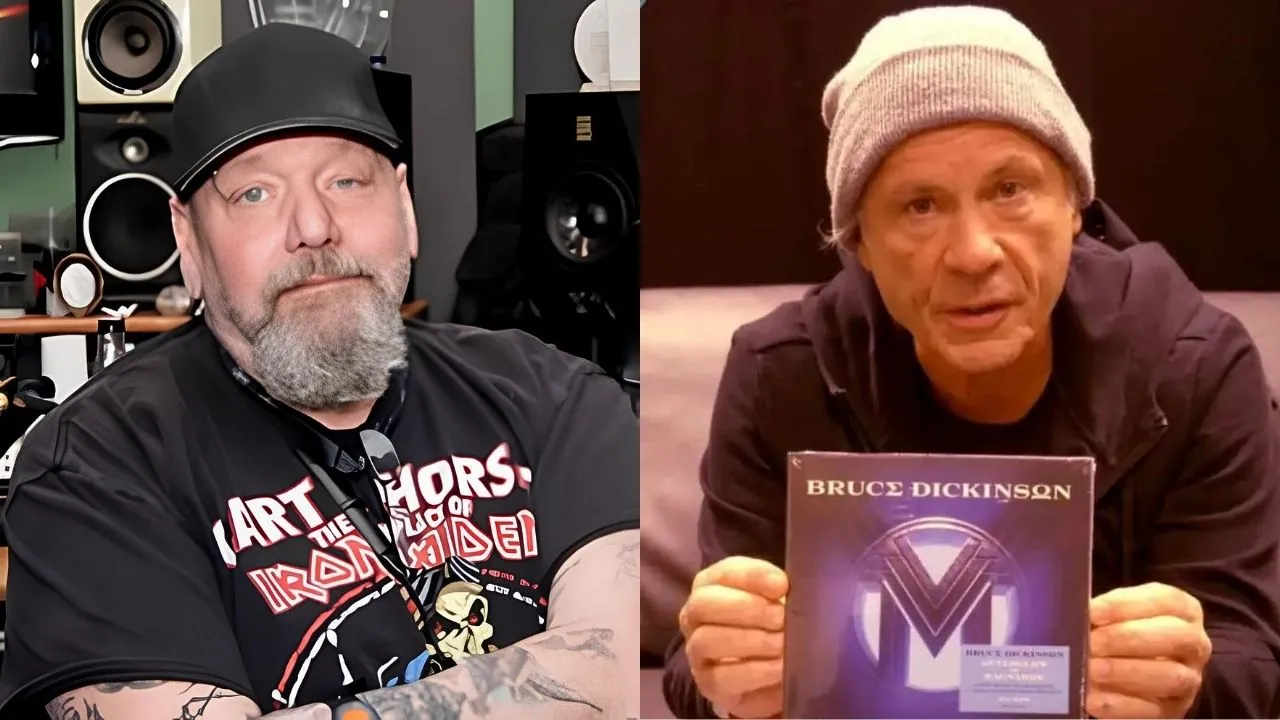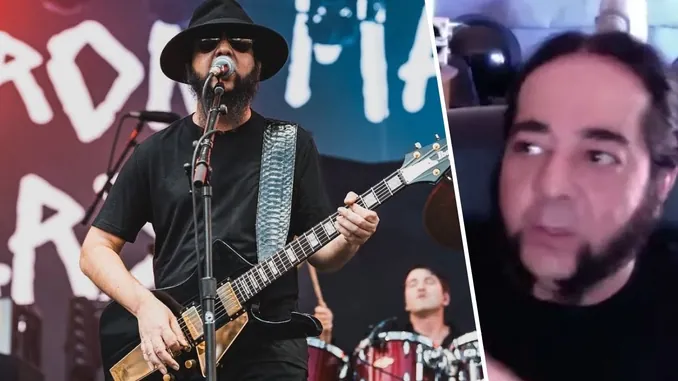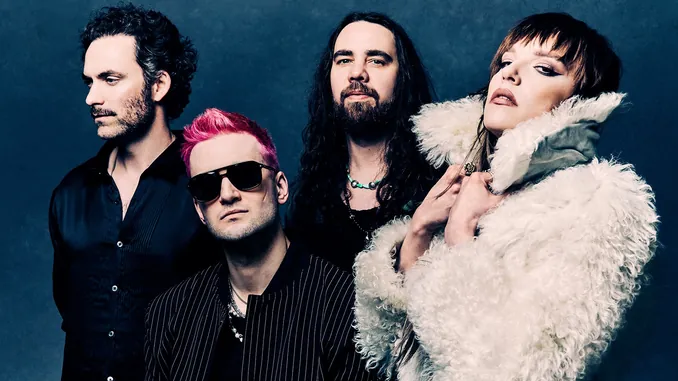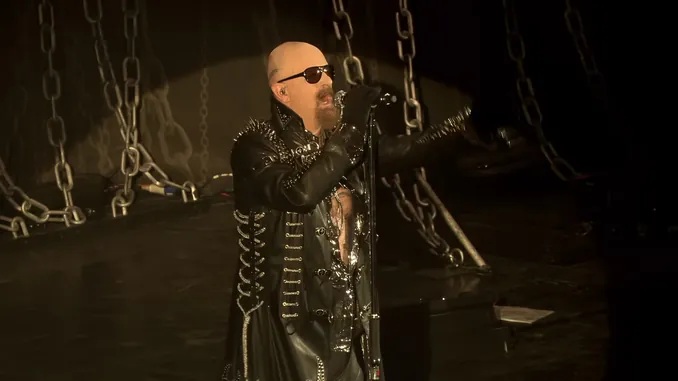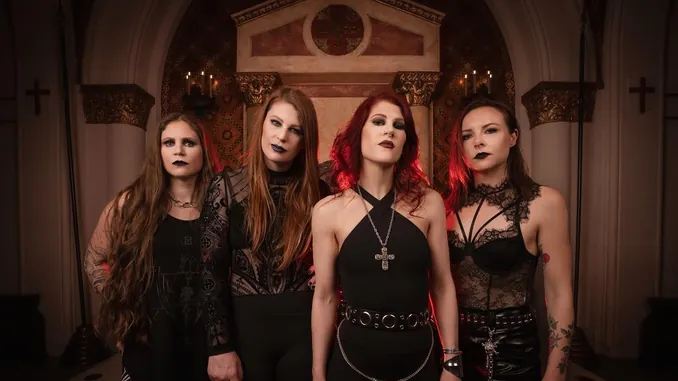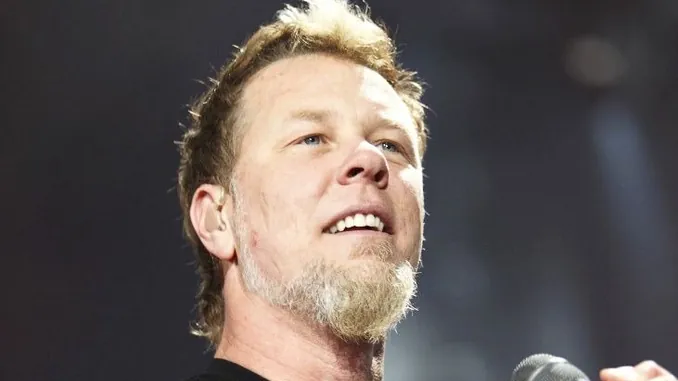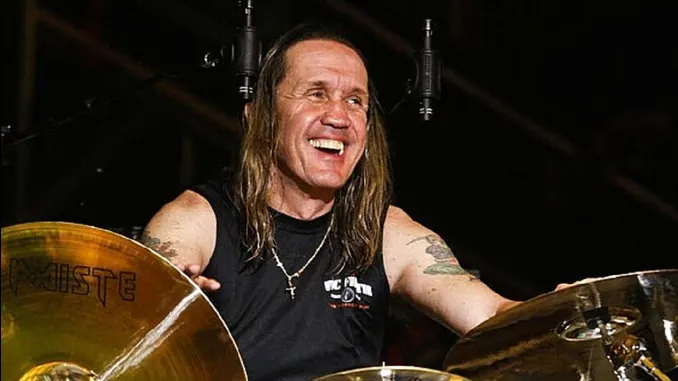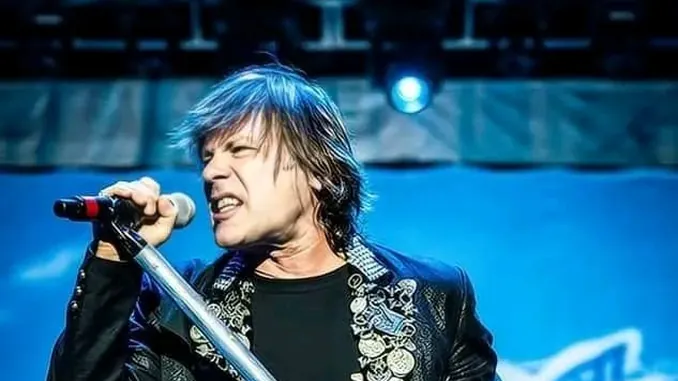IRON MAIDEN’s BRUCE DICKINSON Tells Fans to Stop Asking For Another ‘Number Of The Beast’: ‘That’s Not How Art Works’
The singer explains why fans shouldn’t expect the band to recreate its most famous album.

Summary
- Bruce Dickinson tells fans to stop asking for another Number Of The Beast, insisting ’that’s not how art works.’
- The IRON MAIDEN frontman explains the band’s survival comes from moving forward on their own terms, not repeating the past.
- He reflects on cancer recovery, vocal discipline, and new solo work, emphasizing respect for fans and creative growth.
Bruce Dickinson has a clear message for IRON MAIDEN fans who want the band to recreate its most famous album: it isn’t going to happen.
Speaking in a recent interview (via The Charismatic Voice), the singer explained why requests for another “Number Of The Beast” miss the point of how music is made (transcribed by LOUDLEGENDS.COM).
Related
“Fans keep asking for another ‘Number Of The Beast,’ but that’s not how art works. You move forward, not backward,” he said.
For Dickinson, the legacy of the 1982 record is undeniable. It was the album that introduced him to the world as MAIDEN’s new frontman, producing classics like “Run to the Hills” and the title track.
But more than four decades later, he insists the focus has to remain on what the band and he as a solo artist can create now, not a replica of the past.
Why He Won’t Repeat the Past
In the conversation, Dickinson recalled how people in the music business once tried to explain the album’s success with a single technical detail.
A publisher told him that the high notes in his voice would “make the Americans go raving mad.”
Bruce laughed at the idea even then. Reducing an album’s impact to one vocal trick, he suggested, shows why recreating history is impossible.
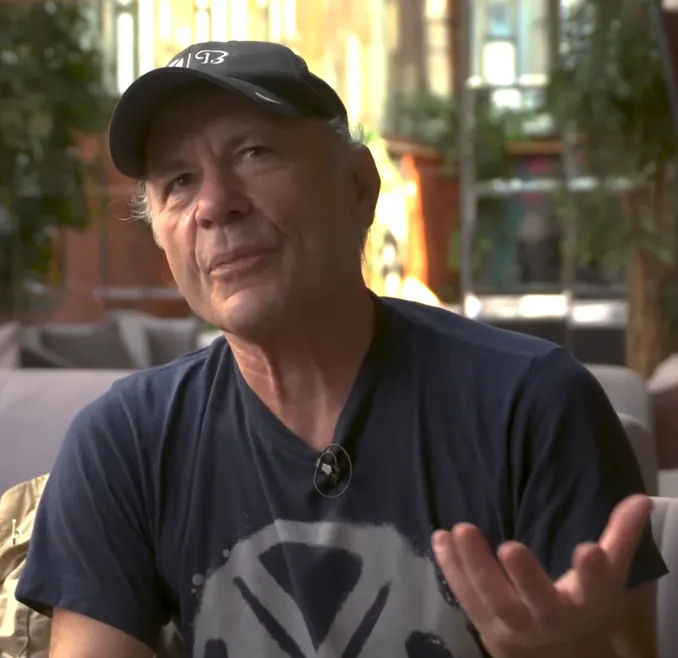
The singer believes IRON MAIDEN has survived because it avoids that trap.
“We’re this weird little bunch of English people who just do our own thing,” he said. “We’ve cut ourselves off from mainstream media. We’ve become our own little tribe… and we’re doing stadiums now.”
That independence, he argued, is what allows the group to keep growing after more than four decades. “We’ve done things on our own terms,” he added.
That approach, he suggested, is why IRON MAIDEN is still filling stadiums worldwide while many peers from the same era have faded.
Standards and Respect for Fans
Bruce also tied his comments about nostalgia to his views on professionalism.
He said he’s baffled by how audiences sometimes accept weak live shows from other artists. “With some artists I wonder why people don’t ask for their money back,” he admitted.
That sense of accountability runs through how he talks about singing.
“I need my instrument,” he said. “It’s like you wouldn’t brush your teeth with a wire brush and then try and play guitar, would you? So just leave my voice alone.”
For him, protecting his vocal cords is as serious as a guitarist maintaining their instrument.
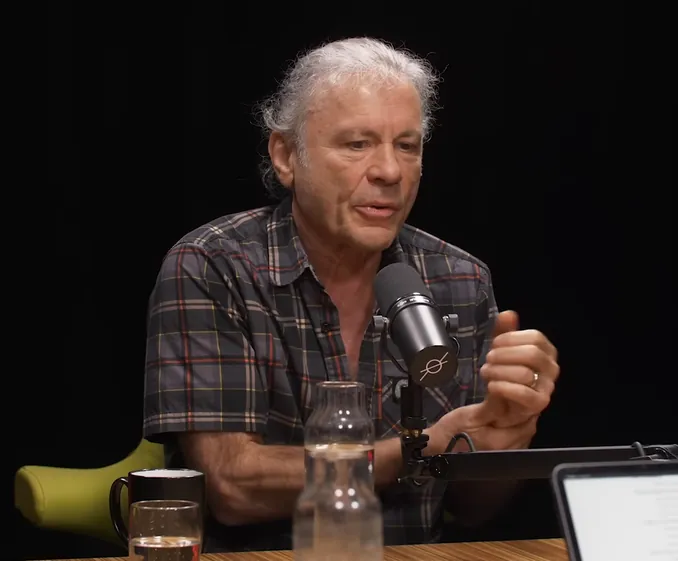
He compared live performance to athletics.
“When you sing live, you’re basically fighting your environment. You’re using your body in the same way a boxer would,”
Preparing for a tour, he said, involves workouts to keep his heart rate up so that the physical side of singing doesn’t come as a shock once he’s on stage.
His Cancer Battle Changed His Outlook
The singer also reflected on how his battle with throat cancer shaped his current perspective. When doctors told him he had the disease, he was stunned.
“You shouldn’t have this cancer. You’re fit, you’re healthy, you do all the right things,”
Even so, the diagnosis was real, and recovery forced him to confront his own impatience. “I’m the world’s most impatient man. And I tried to sing after about six months,” he admitted.
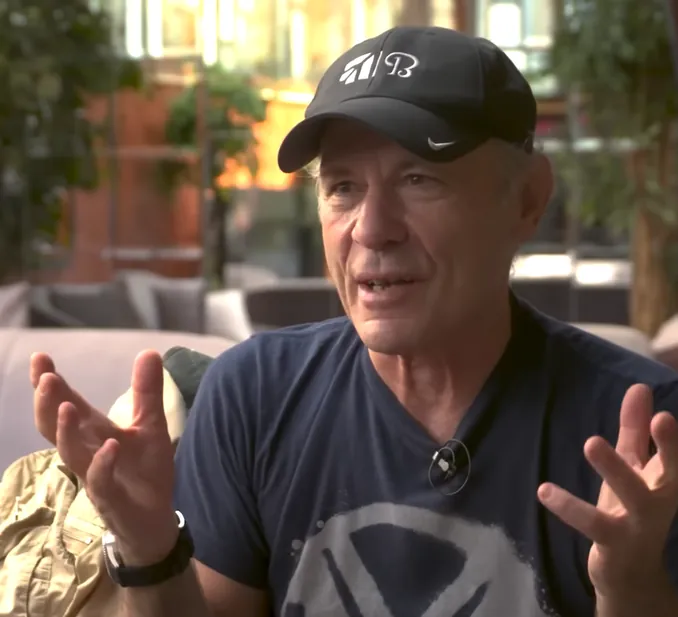
Looking back he recognizes that rushing could have been a mistake, but he also sees how the experience pushed him to respect his voice more than ever.
Cancer also left a lasting mark on his sound. “Your sound changes after cancer,” he said, noting that he had to learn how to adapt rather than attempt to return to exactly what he sounded like before.
That adjustment, in his view, mirrors how an artist must evolve musically, you move forward, you don’t copy the past.
The Rituals Behind the Voice
While Dickinson takes his vocal care seriously, he is not above a little humor about his habits. Fans might be surprised to learn how much coffee fuels his day.
“Without caffeine, I’d be legally dead,” he joked. He starts every morning with four cups and often keeps a flask backstage. Before shows, he sometimes downs a small black coffee to get his energy up.
The ritual is more than a caffeine hit. Surrounded by stage fog and dry ice, he says the smell of coffee helps him feel better. “I smell the coffee and I feel better… literally smell the coffee,” he explained.
For years, he believed caffeine hurt his voice, but he now dismisses that idea. “I used to believe it did, but actually it really doesn’t,” he said.
He also shared a blunt truth about what singers face night after night: “Mucus and phlegm is the enemy of every singer.” It’s not glamorous, but it’s one of the many details he obsesses over to keep his instrument in shape.
New Music on His Own Terms
Beyond IRON MAIDEN, Dickinson also talked about his current solo work. He made it clear that he sees it as more than a side project.
“This record is meant to stand on its own, not as an Iron Maiden side project. It’s its own beast entirely,”
That independence reflects his belief in constant growth. He has also stepped outside the metal sphere at times, experimenting with orchestral performances.
“I did some shows with an orchestra in Brazil,” he said, showing his willingness to explore different formats.
The common thread is the same as with MAIDEN: the art has to evolve. That’s why he doesn’t see value in chasing a formula from 1982.
Even the band’s biggest-selling record, he insists, was a product of its moment, not a blueprint to be followed forever.
Influences and Honesty
Dickinson’s straight talk extended to his personal tastes.
While he praised singers like Ian Anderson of Jethro Tull and said he loved the folkier side of music, he was candid about other acts.
“Voices like people from The Doors… not really my thing,” he admitted.
He also recalled pushing singers in workshops to expand their range. “I’m going to make you sing half an octave higher than you ever thought possible,” he said.
For him, testing limits is essential, whether it’s with students or on his own stage.
Check out the full chat. 👇
Got a tip for us? Email: [email protected]
Andi Deris, longtime vocalist of Helloween, recently opened up about a personal turning point as a heavy metal fan. In a chat with the Scars and …

